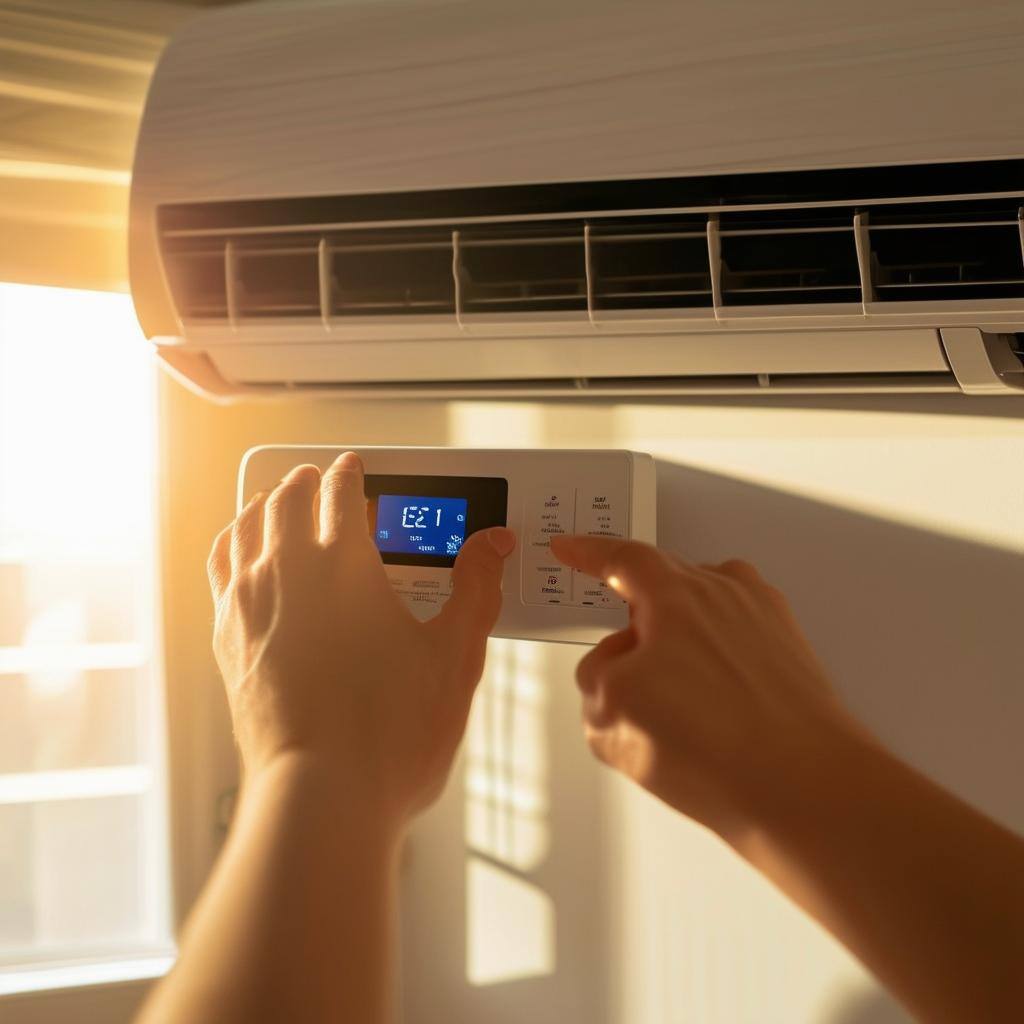
Air Conditioner Troubleshooting Tips for Minnesotans
As temperatures in Minnesota reach their peak during the summer months, a well-functioning air conditioning system is not just a convenience but a necessity.
Hot air stays trapped in your home, even with the windows open, and a working A/C is the only way to combat those skyrocketing temperatures to keep you and your family comfortable. However, Murphy’s Law states the moment you need your A/C the most is the exact moment it stops working.
What can you do to get it back on again?
First, try some of these tips. Then call on our Ideal Air team to ensure your home always maintains your ideal air!
What A/C Troubleshooting Can You DIY?
When your A/C unit fails to cool your home adequately, it can be a source of frustration and discomfort. Before you reach out to a professional HVAC technician, there are several troubleshooting steps you can take to possibly rectify the issue yourself.
Here are some essential tips to help you diagnose and fix common air conditioning problems.
Check the Thermostat Settings & Location
First and foremost, ensure that the thermostat is set to "cool" mode and the desired temperature is set lower than the current room temperature. This may seem basic, but incorrect settings are a common oversight.
Ensure that the thermostat isn't being directly hit by sunlight or placed near heat sources, as this can cause inaccurate temperature readings and impact the A/C's cooling efficiency.
Inspect the Power Supply
Verify that your air conditioner is receiving power. Check if the power switch near the indoor unit is turned on, and inspect the circuit breaker or fuse box for any tripped breakers or blown fuses.
Examine the Air Filter
A clogged air filter can significantly reduce airflow and the efficiency of your air conditioning system. Remove the filter and, if it's dirty, clean or replace it according to the manufacturer's instructions.
Inspect the Outdoor Unit
Clear any debris, such as leaves, dirt, or grass, away from the outdoor unit or condenser to ensure there's nothing obstructing the airflow. Maintaining a clean area around the unit is crucial for its effective operation.
Clean the Indoor Unit
Accumulation of dust and dirt on the coils and vents of the indoor unit can lead to reduced cooling efficiency. Regular cleaning of these components is recommended to maintain optimal performance.
Check for Ice Buildup
If there's ice forming on the indoor unit or refrigerant lines, turn off the air conditioner to allow it to defrost. Ice buildup could be a sign of restricted airflow or a refrigerant issue.
Verify the Fan & Blower Motor
Make sure that the fan and blower motor in the indoor unit are functioning properly. If they're not working, it might indicate a problem with the motor or capacitor.
Inspect the Condensate Drain
Check if the condensate drain line is clear and not clogged. A blockage can lead to water leakage and negatively affect your AC's performance.
Check for Unusual Noises
Listen for any strange or loud noises coming from your air conditioner. These sounds could signal mechanical problems that need immediate attention.
Ensure Proper Airflow
Examine all air vents and registers to ensure they're open and free from obstruction by furniture or other items.
Clean or Replace Ductwork Filters
If your system uses ductwork, inspect and clean or replace any filters within the ducts to improve airflow and efficiency.
Reset the System
Sometimes, simply resetting your air conditioner by turning it off for a few minutes and then turning it back on can resolve the issue.
When to Call an HVAC Professional
Despite your best efforts in troubleshooting, there might come a time when professional assistance is required to get your air conditioning system running smoothly again.
Here are several scenarios where it's advisable to call our HVAC pros at Ideal Air:
-
Persistent Problems: If you've gone through all the troubleshooting steps and your A/C still isn't cooling efficiently, it might indicate a more complex issue that requires professional diagnosis.
-
Refrigerant Leaks: Handling refrigerant requires special training and certification due to its hazardous nature. If you suspect a refrigerant leak, it's critical to contact a professional who can safely address the issue.
-
Electrical Issues: Any problems related to electrical components, such as frequent tripping of the circuit breaker or a non-responsive thermostat, should be handled by a professional to avoid the risk of electric shock.
-
Abnormal Noises or Odors: Strange sounds or unpleasant smells emanating from your A/C unit can be signs of serious issues that need immediate attention from an HVAC technician.
-
Ice Buildup: If ice continues to form on your A/C unit after you've attempted to thaw it out and ensure proper airflow, there could be an underlying issue that a professional needs to investigate.
-
Annual Maintenance: Even if your AC is functioning well, it's a good idea to have it professionally inspected and serviced at least once a year to maintain its efficiency and prevent future problems.
Remember, attempting to fix complex HVAC issues on your own can lead to further damage or injury. When in doubt, it's always best to consult with a licensed HVAC professional who can provide the appropriate expertise and solutions.
Let Ideal Air Keep You Cool This Summer
When A/C troubleshooting isn’t working, get exceptional repairs and routine A/C maintenance from our experienced and certified techs!
Let Ideal Air locate problems, replace broken parts, reset your thermostat or install a smart tech one, and ensure your entire system performs at its best.
For all your cooling and heating needs, trust our team at Ideal Air to fix your equipment right the first time. Schedule a service appointment today by calling us at 651-707-6007 or request an estimate online.



